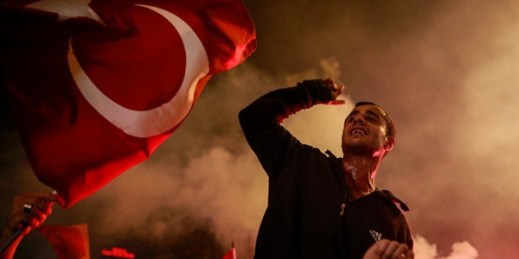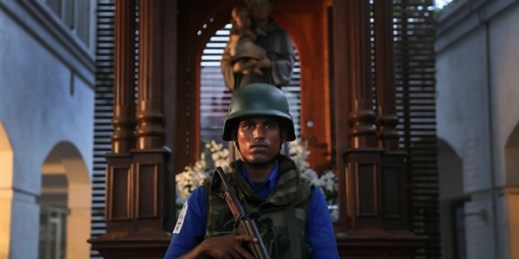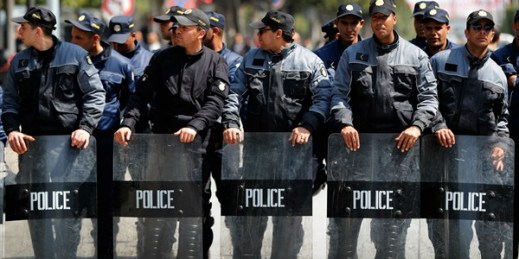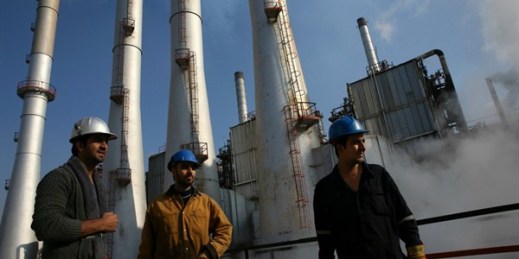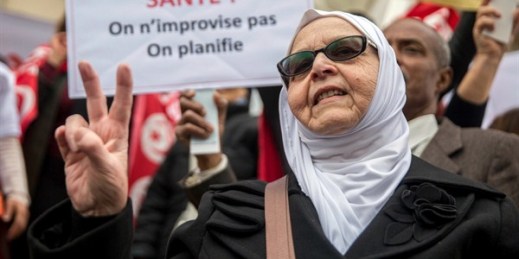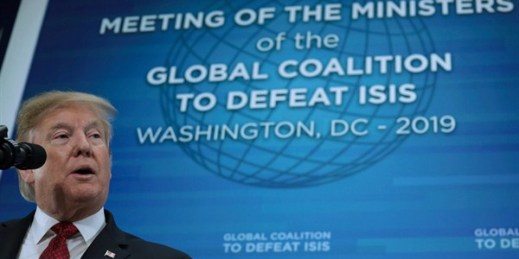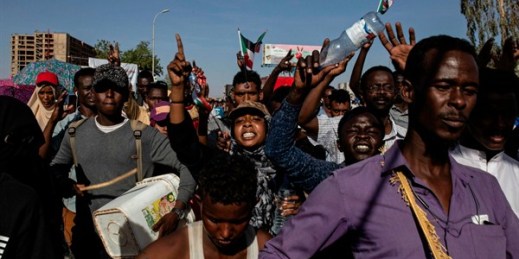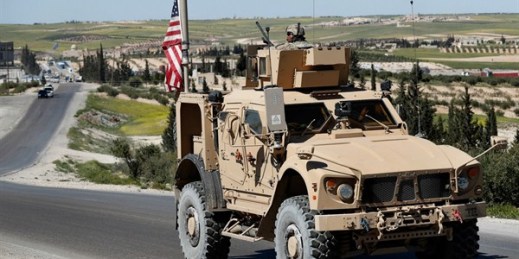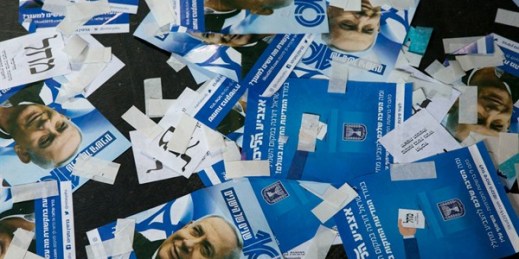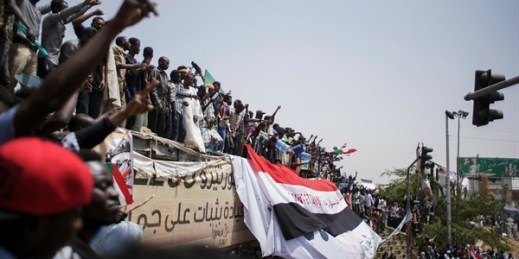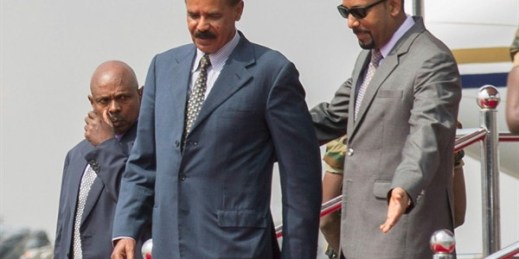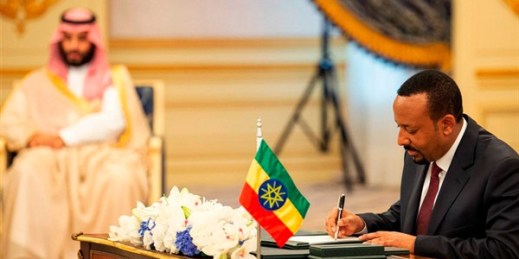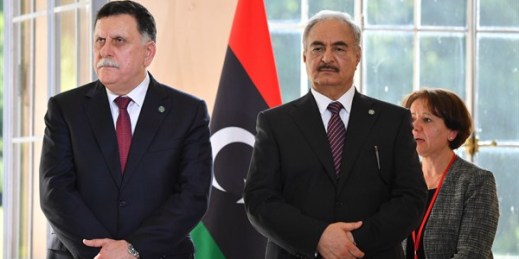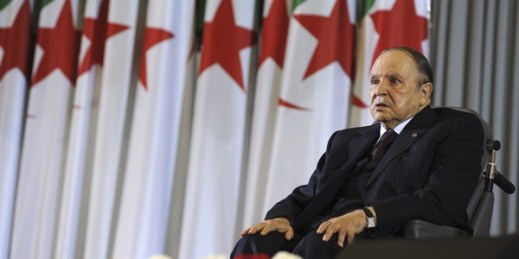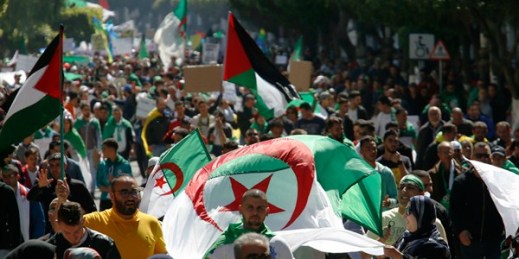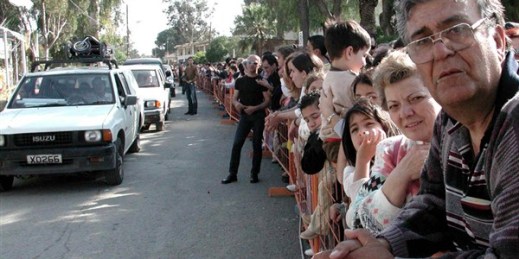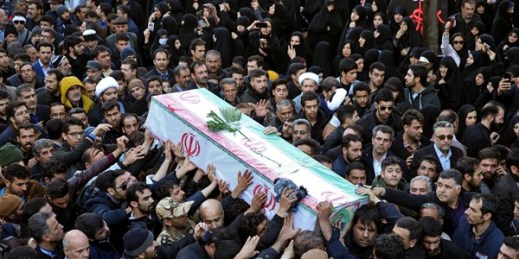
Iranian celebrations to mark the 40th anniversary of the Islamic Revolution earlier this year were marred by a suicide bombing in southeastern Iran that killed 27 members of the elite Islamic Revolutionary Guard Corps. The soldiers had been traveling near the Pakistani border in Sistan and Baluchistan province, where armed Sunni insurgents have waged a decades-long campaign to achieve greater autonomy from the Shiite-led government in Tehran. Iran accuses hostile foreign powers like the United States, Saudi Arabia and Pakistan of supporting the insurgency in the predominantly Sunni region. In an email interview with WPR, Patrick Clawson, director of research […]

